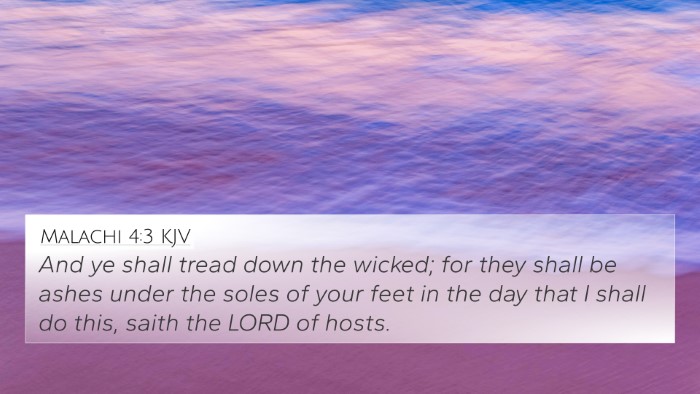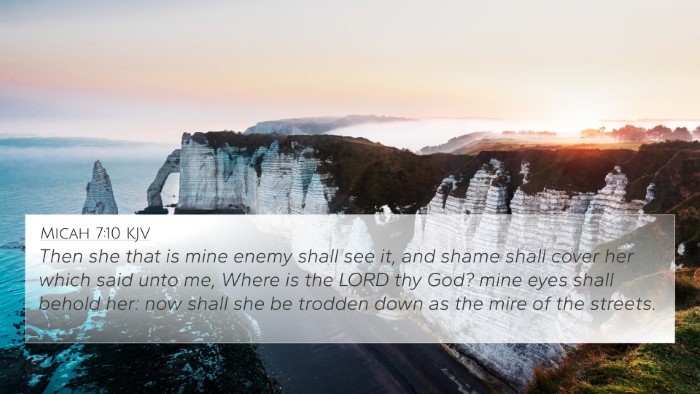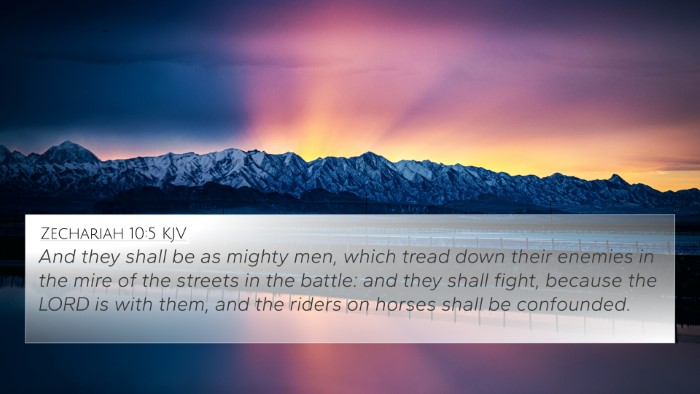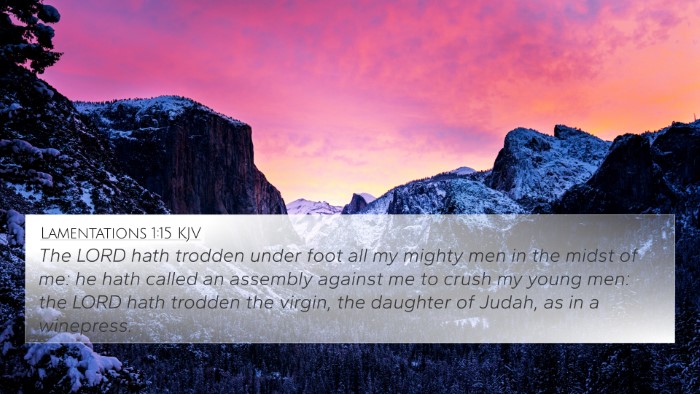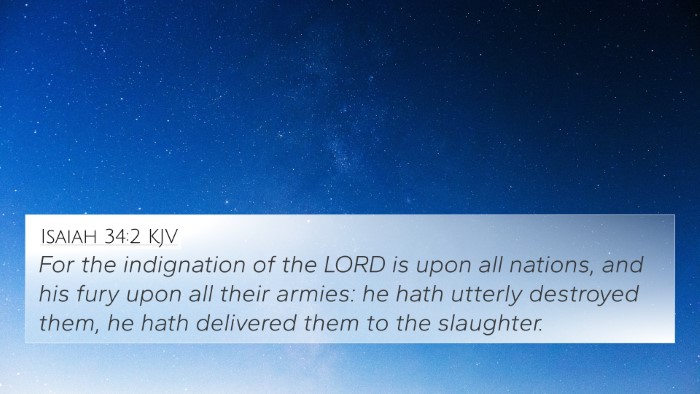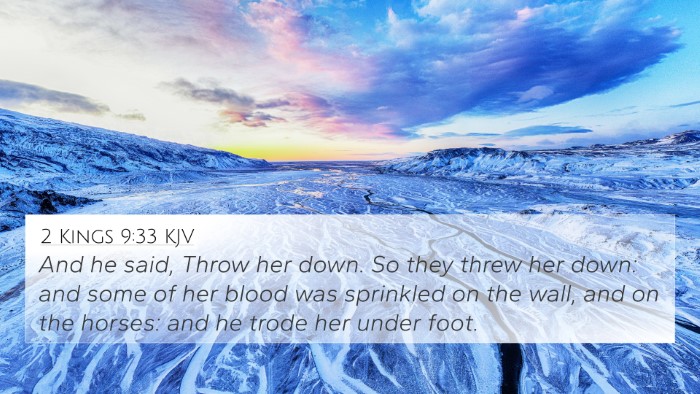Understanding Isaiah 63:3
Isaiah 63:3 states: "I have trodden the winepress alone; and of the people there was none with me: for I will tread them in mine anger, and trample them in my fury; and their blood shall be sprinkled upon my garments, and I will stain all my raiment." This verse is laden with profound meaning, expressing divine judgment and the solitary suffering of the One enacting it.
Verse Meaning and Significance
The imagery used in Isaiah 63:3 serves not only to illustrate God's wrath against sin but also highlights the suffering He voluntarily undertook for humanity. The winepress metaphor signifies a fierce judgment, where the divine expectation for a righteous society has met rebellion and sin.
Insights from Public Domain Commentaries
-
Matthew Henry:
Henry emphasizes the solitary nature of Christ's suffering, illustrating it as a fulfillment of prophecy. It signifies that He faced the wrath of God alone, without aid from humanity, illustrating the depth of His sacrifice for sin.
-
Albert Barnes:
Barnes notes that this verse expresses the indignation of God against His enemies. It highlights the concept of divine retribution and the seriousness of sin, portraying the blood of the wicked as a consequence of divine judgment.
-
Adam Clarke:
Clarke reflects on the blood mentioned in the verse as a symbol of deep spiritual truth. He points out that this vivid illustration of wrath serves to remind believers of the consequences of defiance against God and the need for repentance.
Bible Verse Cross-References
To fully understand the connections and implications of Isaiah 63:3, it is essential to explore related scriptures that elaborate on the themes of judgment, sacrifice, and the solitary suffering of Christ.
- Revelation 14:19-20: This passage echoes the winepress imagery, depicting the gathering of God's wrath upon nations.
- Matthew 26:39: Here, Jesus experiences deep agony in the garden, symbolizing His preparation for the impending judgment He would shoulder alone.
- Hebrews 9:28: This scripture speaks to Christ being offered once to bear the sins of many, resonating with the idea of lone suffering in judgment.
- Romans 5:8: This verse emphasizes God's love demonstrated through Christ's sacrificial suffering, linking it to the message in Isaiah.
- John 1:29: John identifies Jesus as the Lamb of God, reestablishing the link between judgment and sacrifice.
- Isaiah 53:3-5: This passage discusses the suffering servant, outlining the grief and pain that Christ would endure for humanity.
- Galatians 6:7: It warns about divine retribution correlate with Isaiah’s message of judgment and the consequences of sin.
Thematic Connections
Isaiah 63:3 intertwines multiple themes within the Biblical narrative, including:
- Divine Judgment
- The Suffering Servant
- Blood Sacrifice
- God's Holiness vs. Human Sinfulness
Tools for Bible Cross-Referencing
To engage in a deeper study of Isaiah 63:3, consider utilizing various Bible study tools:
- Bible Concordance: A resource for locating words and their occurrences throughout scripture.
- Bible Cross-Reference Guide: Useful for finding thematic connections and interpreting contexts.
- Comprehensive Bible Cross-Reference Materials: Extensive guides that link verses across both Old and New Testaments.
Conclusion
Isaiah 63:3 encapsulates a critical moment of divine revelation involving judgment, love, and sacrifice. By understanding this verse in conjunction with cross-referenced scriptures, believers can grasp the depth of God's redemptive narrative within the Bible, reinforcing the urgency of repentance and reverence toward His justice.
Furthermore, incorporating cross-references not only enriches the interpretation of Isaiah 63:3 but also enhances one's overall scriptural understanding, promoting continuous dialogue among Biblical texts.





